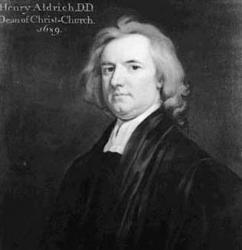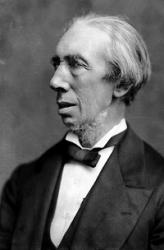Planning worship?
Check out our sister site, ZeteoSearch.org,
for 20+ additional resources related to your search.
- |
User Links
Person Results
Lewis Thomas Downes
1827 - 1907 Person Name: Lewis T. Downes, 1827-1907 Composer of "[God be merciful unto us and bless us and show us the light of His Countenance]" in Hymns of the Kingdom of God
Lewis Thomas Downes
Richard Langdon
1730 - 1803 Person Name: Richard Langdon, 1729-1803 Composer of "[God be merciful unto us and bless us]" in Hymns of the Kingdom of God
Richard Langdon
William Hine
1687 - 1730 Person Name: W. Hine Composer of "[God be merciful unto us and bless us and show us the light of his countenance]" in Common Praise
William Hine
Samuel Wesley

1766 - 1837 Person Name: S. Wesley Composer of "[God be merciful unto us and bless us]" in The Church Service Book Samuel Wesley; b. Feb. 24, 1766, Bristol; d. Oct. 11, 1837, London; composer and organist. Son of Charles Wesley, grandson of Samuel Wesley, 1662-1735
Samuel Wesley
George J. Elvey

1816 - 1893 Person Name: G. J. Elvey Composer of "[God be merciful unto us, and bless us] (Elvey)" in The Church Hymnal George Job Elvey (b. Canterbury, England, 1816; d. Windlesham, Surrey, England, 1893) As a young boy, Elvey was a chorister in Canterbury Cathedral. Living and studying with his brother Stephen, he was educated at Oxford and at the Royal Academy of Music. At age nineteen Elvey became organist and master of the boys' choir at St. George Chapel, Windsor, where he remained until his retirement in 1882. He was frequently called upon to provide music for royal ceremonies such as Princess Louise's wedding in 1871 (after which he was knighted). Elvey also composed hymn tunes, anthems, oratorios, and service music.
Bert Polman
George J. Elvey
William Croft

1678 - 1727 Person Name: William Croft (1678-1727) Composer of "[God be merciful unto us and bless us]" in The Pilgrim Hymnal William Croft, Mus. Doc. was born in the year 1677 and received his musical education in the Chapel Royal, under Dr. Blow. In 1700 he was admitted a Gentleman Extraordinary of the Chapel Boyd; and in 1707, upon the decease of Jeremiah Clarke, he was appointed joint organist with his mentor, Dr. Blow. In 1709 he was elected organist of Westminster Abbey. This amiable man and excellent musician died in 1727, in the fiftieth year of his age. A very large number of Dr. Croft's compositions remain still in manuscript.
Cathedral chants of the XVI, XVII & XVIII centuries, ed. by Edward F. Rimbault, London: D. Almaine & Co., 1844
William Croft
Henry Aldrich

1647 - 1710 Person Name: H. Aldrich Composer of "[God be merciful unto us, and bless us] (Aldrich)" in The Church Hymnal Henry Aldrich, an English composer, born 1657; died 1710; his library is at Oxford College.
A Dictionary of Musical Information by John W. Moore, Boston: Oliver, Ditson & Company, 1876
Henry Aldrich
Seth Bingham
1882 - 1972 Composer of "[God be merciful unto us and bless us and show us the light of His Countenance]" in Hymns of the Kingdom of God Seth Daniel Bingham was born in Bloomfield, New Jersey. He received a Bachelor of Arts degree in 1904 from Yale. He then studied organ and composition in Paris from 1906-1907 and returned to Yale and earned a Bachelor of Music degree in 1908. He became organist and choirmaster at Rye Presbyterian Church in New York and also began teaching music at Yale. He taught at Yale for 12 years and then was on the music faculty at Columbia University. He was organist and music director at the Madison Avenue Presbyterian Church in New York City for 35 years. He composed may choral and organ works with a religious theme, as well as secular music for orchestra, chamber groups, and choruses.
Dianne Shapiro from obituary, New York Times, June 22, 1972 (accessed 12/28/2022
Seth Bingham
George A. Macfarren

1813 - 1887 Person Name: Dr. G. A. Macfarren Composer of "[God be merciful unto us and bless us]" in The Hymnal, Revised and Enlarged, as adopted by the General Convention of the Protestant Episcopal Church in the United States of America in the year of our Lord 1892 George Alexander Macfarren, Mus. Doc.; b. London, 1813; d. London, 1887
Evangelical Lutheran Hymnal, 1908
=======================
Born: March 2, 1813, Westminster, England.
Died: October 31, 1887, St. Marylebone, England.
Buried: Hampstead Cemetery, London, England.
Brother of Walter Macfarren, George was a principal of the Royal Academy of Music; professor at Cambridge University; conductor at Covent Garden, London; program note writer for the Philharmonic Society; and editor of Handel and Purcell. He wrote 18 operas, 13 oratorios and cantatas, 9 symphonies, and 162 songs. He went blind in 1860, and was knighted in 1883.
Sources:
Frost, p. 681
Lightwood, p. 189
Nutter, p. 460
http://www.hymntime.com/tch/bio/m/a/c/macfarren_ga.htm
===============================
http://en.wikipedia.org/wiki/George_Alexander_Macfarren
George A. Macfarren
Henry Purcell

1659 - 1695 Person Name: Henry Purcell, c. 1658-1695 Composer of "[God b e merciful unto us and bless us]" in The Book of Praise Henry Purcell (b. Westminster, London, England, 1659; d. Westminster, 1695), was perhaps the greatest English composer who ever lived, though he only lived to the age of thirty-six. Purcell's first piece was published at age eight when he was also a chorister in the Chapel Royal. When his voice changed in 1673, he was appointed assistant to John Hingston, who built chamber organs and maintained the king's instruments. In 1674 Purcell began tuning the Westminster Abbey organ and was paid to copy organ music. Given the position of composer for the violins in 1677, he also became organist at Westminster Abbey in 1679 (at age twenty) and succeeded Hingston as maintainer of the king's instruments (1683). Purcell composed music for the theater (Dido and Aeneas, c. 1689) and for keyboards, provided music for royal coronations and other ceremonies, and wrote a substantial body of church music, including eighteen full anthems and fifty-six verse anthems.
Bert Polman
Henry Purcell


 My Starred Hymns
My Starred Hymns

